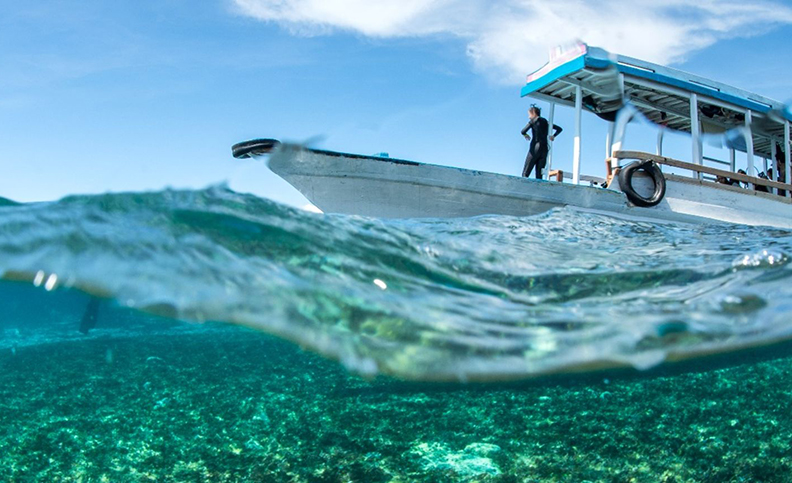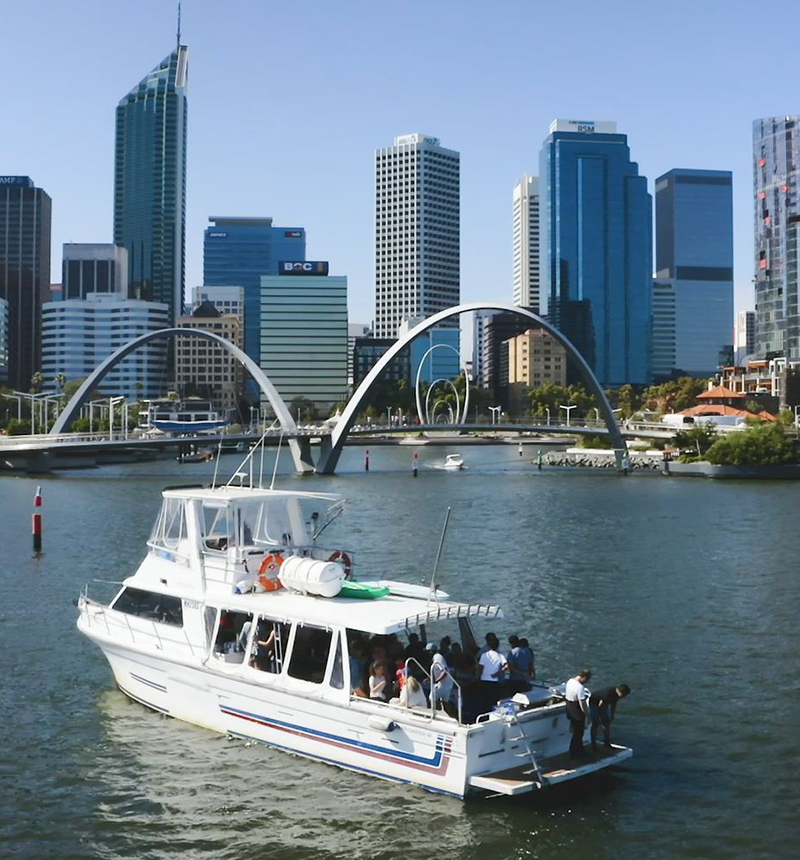Undergraduate + Postgraduate
Bachelor of Earth Sciences and Master of Oceanography
Contact us
Address
Student Central
The University of Western Australia (M355), 35 Stirling Highway, Perth, Western Australia 6009
Telephone
131 UWA (131 892)
International
(+61 8) 6488 1000
Hours
Frequently asked questions
Events you may be interested in
Show more eventsCareers and further study
This course opens up a world of future study pathways and career opportunities.
Career Pathways
There are diverse career opportunities in government, industry, consultancies and research institutions. The need for marine and coastal management, marine renewable energy, safe use of the ocean and aquaculture will require graduates with interdisciplinary knowledge of oceanography.
Career opportunities include:
-
Oceanographer
-
Coastal Officer
-
Marine Consultant
-
Geologist
-
Geochemist
-
Geophysicist
Master of Oceanography
Fees and scholarships
Domestic Student Fees
For Commonwealth-supported places, student contribution amounts are charged by unit, based on area of study. For a fee estimate, go to the Fee Calculator and select “I want to price my units”. Fees are subject to annual indexation. Refer to the Handbook to identify the units required. More information on how fees are calculated.
Scholarships
Scholarships are available to students from a diverse range of backgrounds, including academic achievement, financial need, educational disadvantage, leadership and community service, artistic or sporting achievements, and being from a rural or remote area.
Cost of living
International Student Fees
For Commonwealth-supported places, student contribution amounts are charged by unit, based on area of study. For a fee estimate, go to the Fee Calculator and select “I want to price my units”. Fees are subject to annual indexation. Refer to the Handbook to identify the units required. More information on how fees are calculated.
Scholarships
Scholarships are available to students from a diverse range of backgrounds, including academic achievement, financial need, educational disadvantage, leadership and community service, artistic or sporting achievements, and being from a rural or remote area.
Cost of living
Admission requirements
The University of Western Australia welcomes applications from international and domestic school-leavers. If you’re interested in studying one of these majors, find out the admission details below.
Admission requirements
Minimum entry requirements
- 13.5
- 12
- 2.6
- 86
- 308
- 337
- 338
- 74
- 1270
- 70
- 90
English competency
English is the language of instruction and assessment at UWA and you will need to meet the English language requirements of the University to be eligible for a place.
Minimum overall IELTS score of 6.5, with no band less than 6.0.
Mathematics requirement
This major requires a certain level of Mathematics. If you do not meet this level, you may be able to take additional Mathematics units in your first year to satisfy this requirement.
WACE prerequisite: Mathematics Methods ATAR
How to apply
Apply through TISC
- Log in to the TISC website
If you’re a Year 12 student studying a WACE course at a WA high school or a pathway program, you are already automatically registered with TISC. - Select your preferences
You can choose up to six preferences when you apply through TISC. You should list your preferences in order from your most desired course onwards; this way you’ll have plenty of options to get into UWA. - Lodging your application
You’re almost there! After answering a few questions, you’ll need to make a declaration about your application. - Application processing fee
Your TISC application is lodged once you’ve completed the payment. For more information on fees and payments, visit the TISC website.
Course details
This combined bachelor's and master's (CBM) is a four-year accelerated program for those with an ATAR of 90 or above. The Bachelor of Earth Sciences is ideal for students who are curious about the complex system that comprises the solid Earth, its oceans and atmosphere, and the place of Earth in the solar system and beyond. The Master of Oceanography emphasises learning through practical work to gain knowledge and skills in oceanography encompassing scientific and engineering elements of dynamic coastal zones and seafloor geology.
About the course
Quick details
- Available
- Perth (Crawley campus)
- Full-time, part-time
- On-campus
- Semester 1
- 4 years full time or equivalent
- 90
- CM012
- 107847H
Course structure
In your first three years, you will complete the Integrated Earth and Marine Sciences (extended major) and a semester of postgraduate study. You will then complete your selected specialisation in the Master of Oceanography. Refer to the example study plan on the Handbooks website for more information.
Why study this course?
- An Earth Sciences degree from UWA will provide you with knowledge and skills that are highly valued by employers of geoscientists.
- Emphasis is placed on practical skills gained in the laboratory and through fieldwork, and can be applied to a diverse range of employment opportunities in industry, consultancies and government.
- The Master of Oceanography is the only course of its kind in Australia and will leverage Western Australia's position on the Indian Ocean and unique marine environment including pristine coastal areas and ocean processes shaped by the Indian and Southern Oceans.
You'll learn to
- Critically analyse the physical, chemical, geological and biological processes operating in coastal to deep marine environments
- Apply practical skills needed for management of coastal and marine zones with critical social, economic and cultural value that are increasingly impacted by climatic changes
- Use key knowledge and practical skills in the collection and interpretation of scientific data in both terrestrial and marine settings as well as data analysis and synthesis techniques
- Develop strong interdisciplinary knowledge and technical skills to take advantage of diverse career opportunities in government, industry, consultancies and research institutions.
Work Integrated Learning
Work Integrated Learning (WIL) helps bridge the gap between theory and practice by providing opportunities for students to gain hands-on, practical industry relevant experience and for employers to help shape the graduates of tomorrow.
Your degree options

Indian Ocean Marine Research Centre

Purpose-built collaborative facility for marine science and ocean engineering research.
UWA Oceans Institute

The UWA Oceans Institute brings together the University’s multidisciplinary research strengths across areas including oceanography, ecology, engineering, resource management and governance to address key ocean challenges.



 Bachelor of Earth Sciences
Bachelor of Earth Sciences
